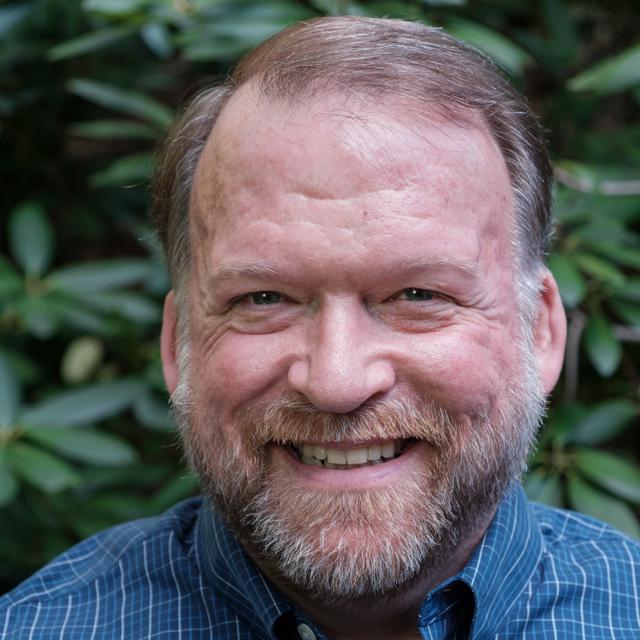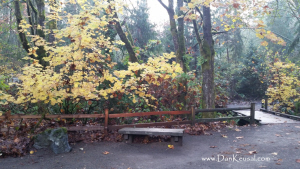Dan Keusal, M.S., LMFT
Jungian Psychotherapy for Individuals & Couples
"Find Your Purpose, Heal Your Pain, Live With Passion"
| Receive my email newsletter! |
Dan Keusal's e-newsletter
Autumn 2017 edition:
"There Is No Secret Ingredient"
(to get my newsletters delivered directly to your email Inbox,
join my mailing list!)
Greetings!
This month I celebrate 25 years in practice as a Jungian psychotherapist (and 20 years as an astrologer). My essay, "There Is No Secret Ingredient," reflects on some of what I've learned in a quarter century. There's also information hereabout three of my upcoming workshops, including one this Wednesday night (10/11/17): "Weeknight Sanctuary--Restoring Inspiration and Hope In Tenuous Times"; there are still a few spots left for that, so sign up today. In my "Resources" section, I share one of my all-time favorite songs, a movie about tearing down and building back up, a poem that speaks from an unusual point of view, and a quote about the true source of fanaticism, which seems more relevant with each passing news cycle. As we descend ever more deeply into Autumn, may you find something here that's as nourishing as biting into a crisp, juicy apple, and that's as comforting as the light and warmth of a harvest bonfire.
~Dan
* * * * *
Reflections: “There is no secret ingredient."
Twenty-five years ago this month, I opened my psychotherapy practice. A friend recently asked me what I’ve learned in a quarter century, and my reply to him was this: “There is no secret ingredient.”
Those words are from the 2008 animated film “Kung Fu Panda.” In this story, “Po” is a young, large, clumsy panda who works in his father’s restaurant (where the “Secret Ingredient Soup” is the best in all the land), but who dreams of becoming a powerful Kung Fu Warrior.
Through an unlikely series of events, culminating in what at first appears to be an “accident,” Po is chosen by the wise old turtle, Master Oogway, to become the Dragon Warrior, who legend has it will vanquish evil and bring peace to all the valley.
Po’s training, under the tutelage of the great teacher Shifu, gets off to an exceptionally discouraging and undignified start. At one point, both teacher and student are ready to give up. But things change when Shifu realizes that in order to train Po, he must first know and understand Po, that it is the deepest levels of Po’s own nature, gifts, and calling that must show the way.
Encouraged by his teacher’s newfound faith in him, Po dedicates himself to the long days of hard work required to finish his training. This work earns him access to The Dragon Scroll, which is reported to contain the secret of unlimited power. With high drama, the scroll is retrieved and presented to Po, who unrolls it and discovers…that it is blank—or, more accurately, that its mirror-like surface shows Po only his own reflection.
Unnerved by this confusing development, and frightened by the challenges to come, Po drags himself back home, where his father says it’s time for him to learn another secret: “The secret ingredient…of my secret ingredient soup…is…nothing! There is no secret ingredient. To make something special, you just have to believe it’s special.”
It’s Po himself who sees the connection between what his father has just told him, and the message of the Dragon Scroll: “There is no secret ingredient. It’s just you.”
I’ve been saying the same thing to my clients for 25 years.
Today, both popular culture and popular therapies promise us that there is a “secret ingredient,” that if we just know The Seven Secrets To this or The Five Keys To that, if we’re just willing to give ourselves over to someone else’s secret wisdom or method, then we will be freed from our problems and will live happily ever after.
Such promises can be powerful hooks when we’re hurting. But while a good resource can provide insight and help along the way, our journeys, in the end, come down to the deeper truth that “There is no secret ingredient. It’s just you.”
“It’s just you” means that finding our path and our power is about looking in the mirror, and seeing what Po saw in the Dragon Scroll. It is about learning to look within rather than outside ourselves. As Jung once wrote, “Your vision will become clear only when you can look into your own heart. Who looks outside, dreams; who looks inside, awakens.”
“There is no secret ingredient” means that awakening is a gradual process, one that requires courage, persistence, and hard work. This process is about outgrowing our old self. It’s about becoming, each day, a little more conscious than we were the day before. Over time, this increasing consciousness allows us to recognize, slowly but surely, the origins of our wounds and our dysfunctional patterns, the ways they show up in our everyday life, and how we can transform them by making new, life-giving choices—including the choice to believe in ourselves.
My clients often say to me that the prospect of “It’s just you” leaves them feeling inadequate. “I ‘look into my own heart,’” they tell me, “and it seems like what’s there isn’t enough compared to what life is asking of me.”
In 25 years of practicing therapy, I’ve learned that what lies in the heart, in the psyche, in the soul of each person is perfectly trustworthy—if we look deeply enough. Jungian Psychotherapy is also called “Depth” Psychotherapy, because it helps us access the wisdom, the gifts, and the guidance that can be found in our own depths. “There is no secret ingredient. It’s just you.” And that…is more than enough. It’s everything.
Resources For A Life Of Depth And Meaning:
(poem): "Being A Lake" (Robert Wrigley). From Wrigley's latest book of poetry, Box.
(song): "The Moon And St. Christopher" (Mary Chapin Carpenter). This performance by Mary Chapin Carpenter of Mary Black's composition is on the short list of my favorite songs of all time. It's a tender reflection on how one's journey looks different at mid-life than it did as a young adult, and what we draw on to guide us.
(quote): "Fanaticism always indicates unconscious uncertainty not yet registering in consciousness." (Robert A. Johnson)
(movie/DVD): "Life As A House" (2001). When George Monroe (played by Kevin Kline) gets laid off from his job as a builder of architectural models, and is diagnosed with cancer on the same day, he decides to tear down the shack where he has been living. What he chooses to build in its place helps to heal his relationship with his estranged, drug-addicted teenage son, his ex-wife, his neighbors, his deceased parents, and, ultimately, himself.
(photo): "Autumn--Stone, Bench, Path" (by Dan Keusal). Click on the photo to read more about it, and to download your own copy from my web site.
Dan Keusal, M.S., LMFT, Psychotherapist. (206) 523-1340. Email: dankeusal@dankeusal.com

